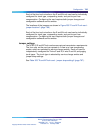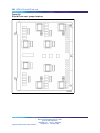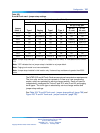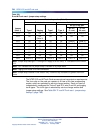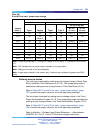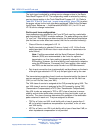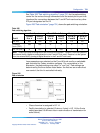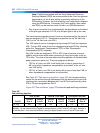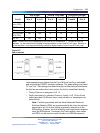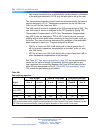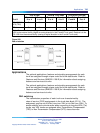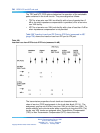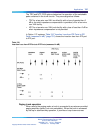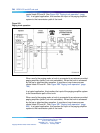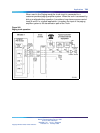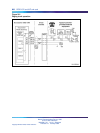
Configuration 793
Port B pads E and M Trunk Pads Port-to-port loss (dB)
Port B
Transmit
DtoA
Receive
AtoD
Transmit
DtoA
Receive
AtoD
Port B to
E and M
E and M to
Port B
Universal
trunk (TRC)
Out Out In In
00
IPE TIE (VNL) In Out In Out
00
PE line N/A N/A Out In
3.0 4.0
PE CO/FX/W
ATS (TRC)
Out Out In In
00
PE TIE Out Out In In
00
Note: Transmit and receive designations are from and to the Meridian 1. Transmit is from the
Meridian 1 to the external facility (digital-to-analog direction in the E and M Trunk card). Receive is
to the Meridian 1 from the external facility (analog-to-digital direction in the E and M Trunk card).
Figure 257
Pad orientation
Loss parameters are selected on the E and M trunk card by a switchable
pad controlled by CODEC emulation software. The pads settings are called
"in" and "out." Pad settings are determined by the three factors listed below:
the first two are under direct user control; the third is controlled indirectly.
• Class of Service is assigned in LD 14.
•
Facility termination is selected (2-wire or 4-wire) in LD 14 (the 2-wire
setting provides 0.5 dB more loss in each direction of transmission for
echo control).
Note: Facilities associated with the Nortel Networks Electronic
Switched Network (ESN) are recommended to be 4-wire for optimum
transmission so, the 4-wire setting is generally referred to as the
ESN setting. However, the 4-wire setting is not restricted to networks
using the ESN feature. Conversely, the 2-wire setting, often called
non-ESN, can be used on certain trunks in an ESN environment.
Nortel Communication Server 1000
Circuit Card Reference
NN43001-311 01.04 Standard
Release 5.0 23 May 2008
Copyright © 2003-2008, Nortel Networks
.



